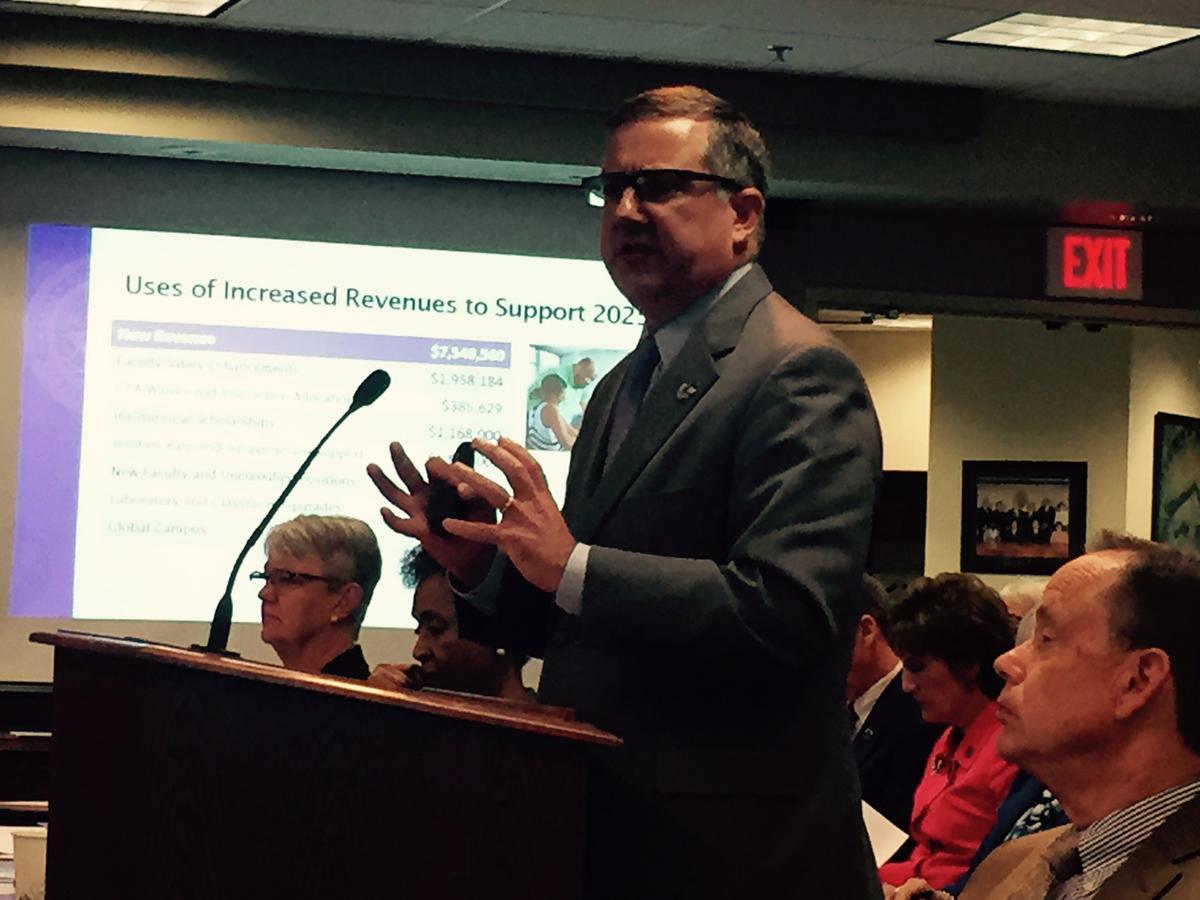Immigration is a hot topic at all levels of politics.
Whether the debate is over a wall along the Mexican border or granting in-state college tuition to people brought into the country illegally in Missouri.
But one area university is bucking the trend and aggressively recruiting students that other univiersities are unable or unwilling to help.For Maria De La Torre, a graduate of Kansas City Public Schools, Kansas State University just might have saved her academic career.
She moved to Missouri from Guadalajara, Mexico when she was 12. Her mother was trying to escape an abusive relationship and sought a better life for her daughter.
De La Torre would go on to be valedictorian of her class at East High School and graduate with both a high school diploma and an associates degree. She also worked full time.
Being from Missouri, De La Torre says her first choice was to go to the University of Missouri in Columbia, but because she doesn’t have a student visa and she didn’t qualify for Deferred Action for Childhood Arrivals (DACA), she got nowhere.
De La Torre says she couldn’t even fill out the online application, and when she called Mizzou, she says it just got worse. She was told they couldn’t help her and then she was hung up on.
“It was the first school I was applying to and it made me really upset and I started crying. But I got over it and started applying to other colleges,” she says.
That’s when Maria De La Torre found Kansas State University. The vice-president of student life looked at her record and immediately offered her scholarships to pay for most of her education.
“What better story is out there than taking somebody who comes to America, regardless of how they get here, and wants to better themselves with a college education, contribute to the economy and be a great citizen,” says K-State President Kirk Schulz, who just announced he’s leaving Manhattan for the top job at Washington State University.
Over the last several years, K-State has been aggressively recruiting DACA and other students who are in the country illegally, using privately raised money to provide grants and scholarships.
While K-State has a Spanish web site for prospective students, that’s not how most undocumented students find the university.
There is a certain underground, word-of-mouth aspect to it.
Students often get to Manhattan because their principal knows someone at K-State or maybe they learned about it through a Hispanic organization, like El Centro in Kansas City, Kansas where K-State has an office.
“I would say courageous, champions but I would say most important really setting that pathway for students who only know this as their country,” says El Centro President Irene Caudillo.
How courageous is K-State in providing scholarships to students like De La Torre?
Last year Missouri lawmakers took away in-state tuition from DACA students.
The situation is Kansas is better, but still tenuous.
Kansas is one of only 16 states that grant in-state tuition to undocumented students.
“I just see this as rewarding behavior we should not be encouraging,” says state Rep. Brett Hildabrand, a Republican from Shawnee. Last year, he sponsored legislation that would force undocumented students in Kansas to pay out-of-state tuition, more than doubling their college costs.
The bill never got out of committee but remains active.
Hildabrand is a K-State grad. His capitol office is dominated by purple.
Still, this rubs him the wrong way. “That money could be going to immigrants who have gone through the legal process, those scholarships, or to Kansas students who have lived here their whole life.”
But K-State is firm in its policy. “I do know that not every legislative individual out there agrees with this particular stance. But we’re going to continue to be aggressive,” says President Schulz. “We want those students to feel comfortable at Kansas State, and I believe in 20 years somebody’s going to come back, they’re going to make that major gift to the institution and say, ‘Without Kansas State giving me my shot, I never would have been where I am today,” and that’s the reason we’re doing it.”
Turns out Schulz may be on to something, if junior Maria De La Torre is any indication. “I believe in the future. If I make it, I would have to come back and help anyway I can, especially students like myself. If I can give them scholarships at some point, that’s my dream.”
While K-State officials say they do not know precisely how many undocumented students are on campus, the number of Hispanic students has grown by about 500 over the past five years.
And even though Schulz is leaving, it appears the program is so ingrained in the K-State admissions culture that there’s little chance of it disappearing.
However, top officials at Kansas State note that there’s no telling what the Legislature might do.
Sam Zeff covers education for KCUR. He’s also co-host of KCUR’s political podcast


